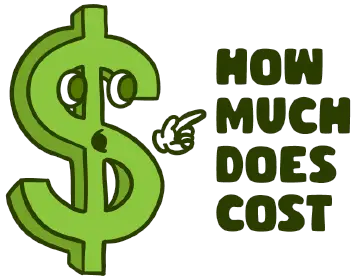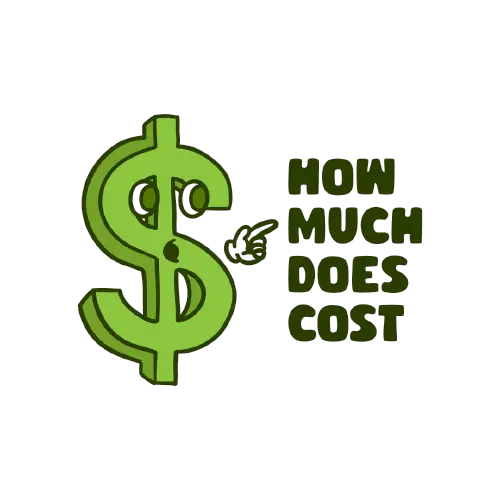Songwriters always think about running their own music publishing company. There are countless perks to running your own publishing company instead of staying under the contract of another.
Having your own music publishing company will help the songwriter retain publishing to share and the writer’s share of any income generated from the music. The control of all the creative process is another handy perk to gain once you run your own publishing company.
Publishing refers to an activity of making the most helpful content accessible to the public or adding a fee to it. The scope of publishing was limited, but now it covers more media territory than ever before. In recent years, the scope of broadening the term publishing has expanded to new regions. Now publishing covers eBooks, journals, websites, blogs, video games, and several other titles.
Table of Contents
Initial Cost of Starting A Music Publishing Company
The cost of starting a publishing company can be as low as $50 to as high as $1000. You will also have to deal with annual fees each year, and the rate will differ from one state to another. To get accurate info on the price, you will have to research your state.
Creating a music publishing company begins with simple steps. They all function the same as any other publishing company as they do in Maui publishing. At first they:
- Set up a goal
- Create brand
- Select a proper business venture
- Setting up the infrastructure
- Using tech to boost marketing
- register
- And then start publishing
Each of the points above helps the publishing company reach new heights without jeopardizing the future a bit. Every step should be taken seriously, as it adds value to the publishing machine.
You will also have to purchase equipment such as a computer running photoshop, a monitor, a sewing machine, and a foil blocking press.
What is the job of a publishing company?
In the simplest form, the job of a publishing company is to create the content and then distribute it to the public. There is a difference between a publishing company that works at a small scale and a company that moves beyond the large scale territory. Large companies publish music in their number every year.
Small publishing companies only produce a handful of products compared to large-scale companies. The process of starting a music publishing career is relatively easy. Whether you think about making your music and publishing it or publishing other songs, creating your own publishing company is relatively easy. This article will go through all the aspects of a music publishing company in steps.
What do music publishers do?
First, they acquire catalogs of music to make money from them. Then to spread the catalogs’ name or value to the world, the licensed to television companies, film studios, game studios, and other advertising companies. Media companies always need music for a product or any service.
The publishing company handles all the licensing invoices, metadata input, royalty splits, and infringement claims. If you look at the music publishing industry now in 2022, you will find only three major publishing companies and more independent music publishers.
The three primary players of music publishing companies are Sony/ATV, Warner Chappell Music, and Universal Music publishing group. All the other music publishers act as independent music publishers.
How do you get qualified as a music publishing company?
To qualify for your position as a music publisher with BMI, you must already be a co-publisher or publisher of any commercially released musical compositions. Any song is available on CD, DVD, Digital download, or any music broadcasting live or about to be broadcast on radio, tv, film, or another entertainment medium such as cable, internet, or PPV.
Paperwork Required For Start A Music Publishing Business
Next comes the application fee, which can be done online. The fee here can be $150 for slowly own publishing companies to affiliate and $250 for partnership and dealings. You should know that there is no fee to affiliate with BMI as a writer.
In the application process, you will have to submit five potential names for your publishing company in order of preference. You have to think about the company’s name and logo, and you have to get creative, as selecting a name that is too similar to other names that exist in the world will not fly well.
Or, coming with a name that often shares similarities with another name should be avoided at any cost as this will lead to more confusion and cause issues during the payment process to the wrong company. After you have come up with a name for your company, you will have to mess your hand with a pile filled with paperwork provided by the state.
You will have to pick a location, and then the state will give you paperwork to legally register your business in the books. You will have to download all the necessary forms online from the state’s office.
All the data here will be crucial, and every little thing has to go through a proper order to get approval from the state. Completing these forms will allow the business to add a bank account to the line of business. To get the cash drafted for your company, you will need to complete all the paperwork to create a bank account under the new company. The bank account here will get used for performance and mechanical royalty checks.
Registering process for the music publishing
Publishers will have to register songwriters’ songs with BMI. Registering a son will require login into the BMI online services and making your way to the Work Registration option. If the songwriter registers the song in their name, they will have to file the appropriate forms to transfer the copyright of the music to the publishing company.
In short, these are the steps that you will have to go through to set up a proper musical publishing group.
How do music publisher companies make money?
Since disrupting the music is the job, the music publishing company makes money off sales of the music to the consumer via digital streaming, CD, DVD, and various other ways.
Traditional publishers have their way of making money off goods compared to the digital establishment. Online music publishers make money via blog posts, ebooks, webinars, podcasts, interviews, training, sponsored channels, bannered ads, and sponsored ads.
How much can you make money off publishing companies?
The size of the publishing company will affect the salary of the employees. The highest-paid publishers in the market can earn about a quarter of a million dollars, while the lowest-paying job can make about $60,000.
Music publishing companies rely on talent to gain attention. The better talent they have under their tent, the more positive reception they are going to see in their advancement in the music industry,
Some of the major publishing companies in the world hold onto mainstream talents whose influence transcends decades. The money they make off the talent is vast in numbers, and it is not even comparable to the leading independent music company.
It is the publishing company’s job to search for talent that can shine in the current marketplace. As the world gets more competitive day by day, the internet introduces more talented artists to the scene. The publishing company’s job is to search for the talent that can produce music that fits the needs of today’s generation.
The future of the music publishing business
Nowadays, much publishing relies on streaming and other modern technology to push the brand to as many people as possible. The music publishing company once thought of streaming as a threat to the music world. But now, it is seen as a reimagination of music and the culture of consumption for people.
The introduction of new technologies such as blockchain, VR, and AI has made publishing companies more accurate at picking up opportunities globally. It is also made it a lot easier for people to find work in the publishing industry.
In the future, we will see the implementation of more technology into the publishing business world. The right to create music and share it has gone to another level ever since the introduction of the internet to people’s lives worldwide.
Conclusion
Staying in the market will be much more complicated than starting a business in the world of today. Implementing new technology has made entry much easier for any artist who wants to put the song out in the air. And the publisher who wants to distribute the music for financial incentives.
Adaptation of new technology, finding raw talent, understanding the music climate, creating songs that fit today’s tune, and many more challenges will have to be tackled by the music publishing company to grow in this field.
The writer and the musician will also have to be comfortable dealing with the publishing company with the records and money they will make off their records.

